Innovation Talks –
The Future of Protein
On Tuesday, March 12th, SME Connect held a roundtable discussion titled „Innovation Talks: The Future of Protein“. Event was hosted by DR PAUL RÜBIG, Member of the European Economic and Social Committee; Member of EIT Governing Board; SME Connect President, taking place in the European Economic and Social Committee. The panel featured distinguished experts, including LORENA SAVANI, Mission Lead for Healthier Lives Through Food at EIT FOOD; PROF MARK FENELON, Head of Food Programme at the Teagasc Food Research Centre; PROF PIETRO PAGANINI, Co-Founder and Curiosity Officer at Competere; ALEXANDER ANTON, Secretary General at European Dairy Association and ANDREA BERTOCCO, Director Scientific Affairs EMEA at Herbalife. The discussion was moderated by DR HORST HEITZ, Chair of the Steering Committee of SME Connect.
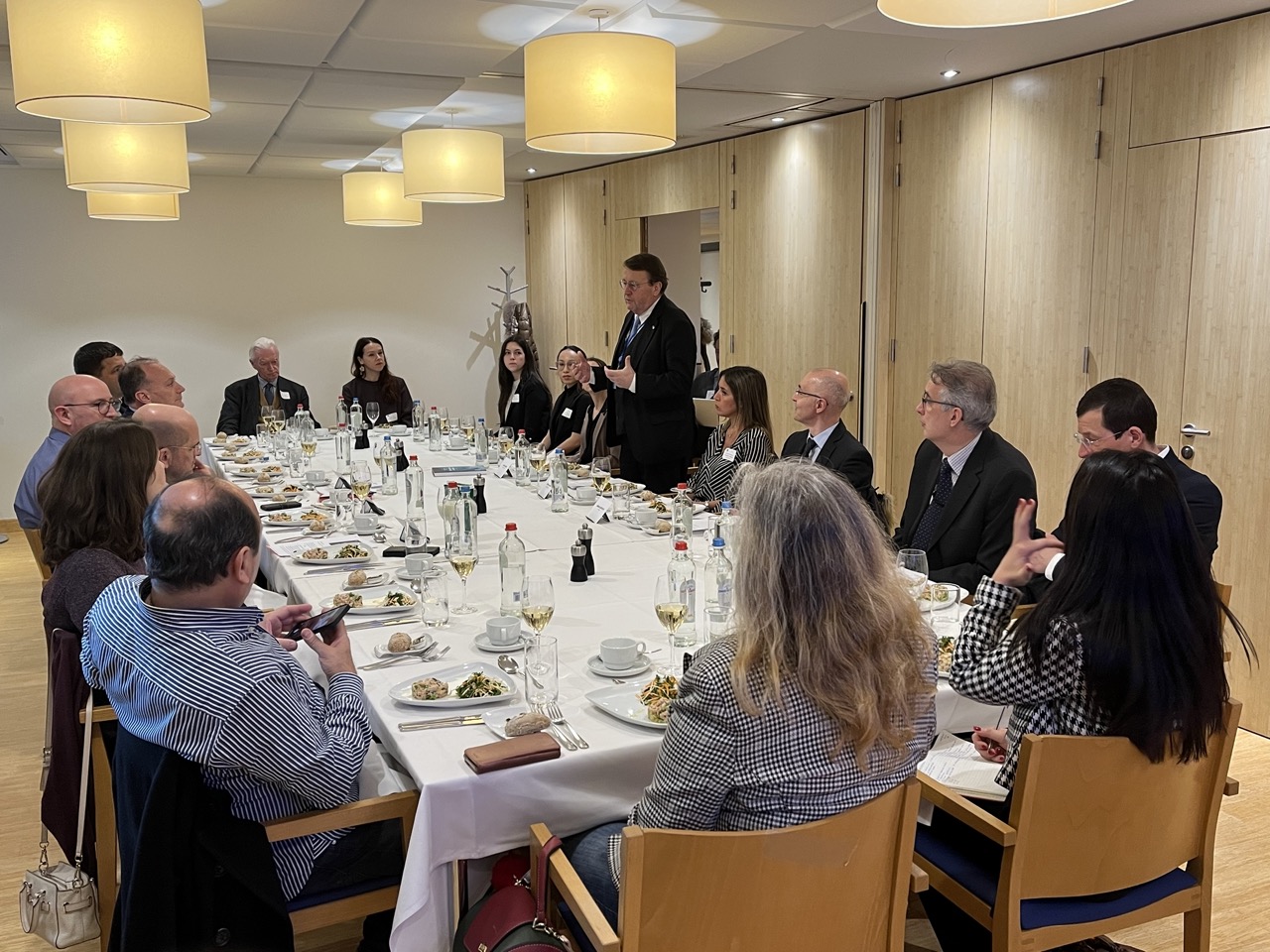
DR. PAUL RÜBIG, boasting over two decades of experience as a Member of the European Parliament and currently contributing to the European Economic and Social Committee, underscored the pressing need to for an emergency preparedness in an evolving global landscape, as well as the paramount significance of food, water, and energy. In his intervention, he delved into the realm of personalized healthcare and treatment, acknowledging the transformative potential of research and scientific advancements in unlocking novel possibilities. He emphasized the critical importance of assessing both the potential benefits and risks associated with these developments, advocating for collaborative endeavors at the European level to devise effective solutions. Notably, he referenced ongoing discussions pertaining to protein production and the assessment of lifetime therapies as significant examples
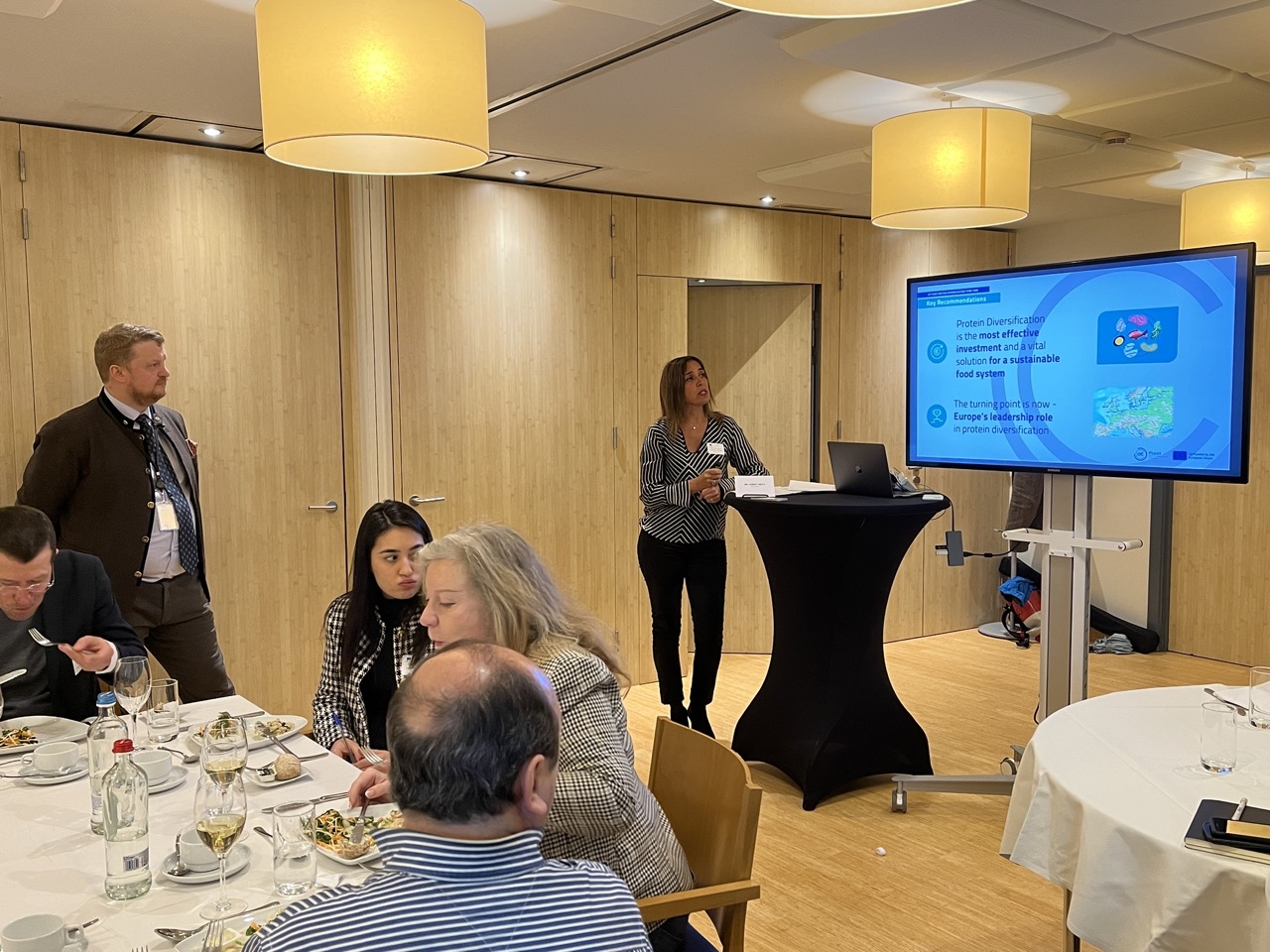
Represeting the world’s largest and most dynamic food innovation community, LORENA SAVANI underscored the pressing need for protein diversification in the European food system. She highlighted the current challenges facing the existing food system, including climate and biodiversity crises, water pollution, and nutritional deficiencies. The overarching goal of the EIT Food is to ensure that by 2050, Europeans have access to a sustainable, nutritious, and affordable protein-rich diet. Lorena advocated for a strategic approach, which includes fostering dialogue, identifying barriers, providing recommendations to policymakers, and sharing evidence-based knowledge. Key recommendations include acknowledging protein diversification as a strategic investment for building a sustainable food system, decarbonizing agriculture and food industries, and adopting a systemic approach to problem-solving. She advocated for comprehensive policy reforms spanning research funding, regulatory frameworks, consumer education, and promoting fair competition. She stressed the importance of improving the regulatory process, increasing public funding and investment, supporting farmers, and ensuring market accessibility and affordability.
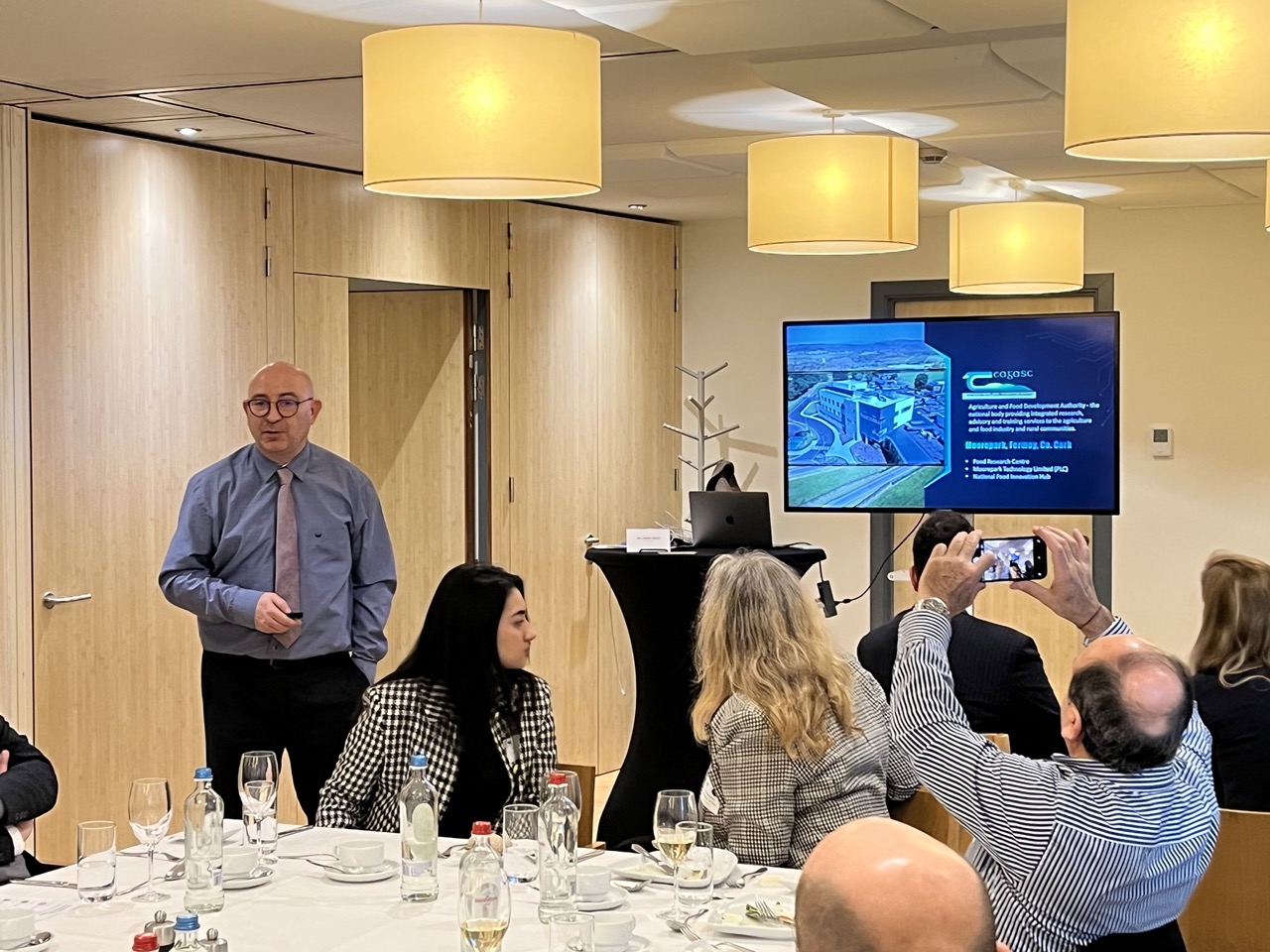
In his keynote address PROF. MARK FENELON delved into the nexus of his scientific research and food processing expertise, particularly focusing on his work at the Irish food centers underlining sustainability as its core, with an emphasis on nutrient density and the holistic valorization of entire plants. The nutrient density approach, involves an intricate assessment of the environmental footprint of foods, considering factors such as protein, fat, carbohydrates, minerals, and bioavailability. Professor Fenelon underscored the significance of adopting this perspective across both plant-based and dairy industries, stressing its potential to revolutionize sustainability practices. Turning to the second focus, Mark discussed the imperative of cultivating alternative enterprises capable of valorizing every part of the plant, thereby augmenting traditional dairy and beef sectors. He elaborated on the development of a bio-process innovation suite in Ireland, highlighting the necessity of strategic collaborations and alignment with labor claims and cost-effectiveness measures. Mark touched on the changing regulatory landscape, especially in water quality measurement. He concluded with insights into ongoing research projects, including a government-funded initiative with six tasks ranging from land use sustainability to protein profiling. Addressing the challenges and opportunities inherent in scaling up plant-based alternatives, Mark emphasized the critical need for infrastructural support bridging the gap between farm-level production and large-scale processing, thereby fostering a more resilient and sustainable food ecosystem.
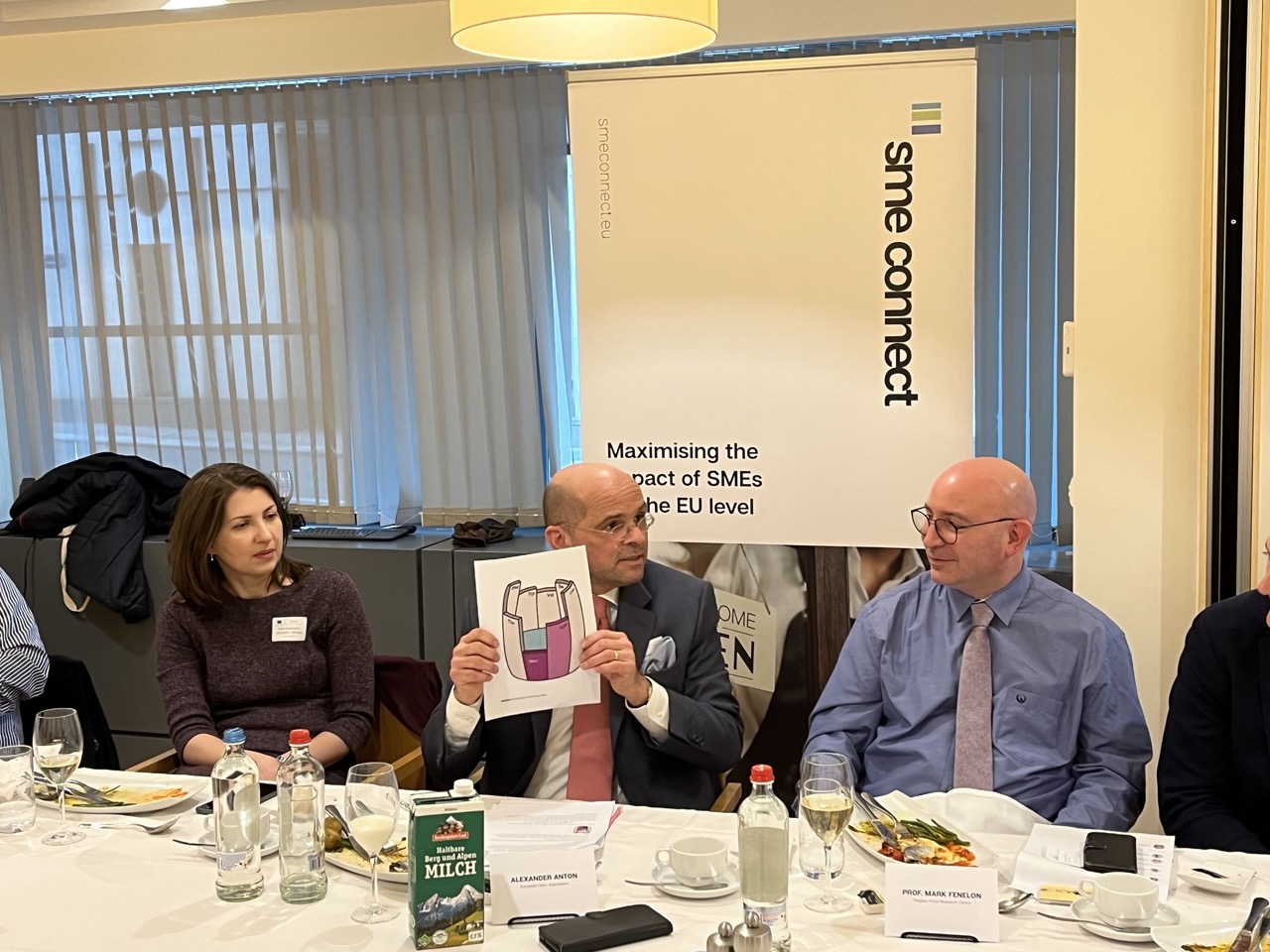
Representing the European Dairy Association, ALEXANDER ANTON highlighted key points on the role of dairy in the protein landscape and drew attention to the need for a comprehensive understanding of protein quality. He discussed the current utilization of oats, with over 60% allocated to bovine feed, intricately linking oat consumption to milk production. Alexander accentuated the enduring spirit of innovation within the dairy sector, particularly championed by small and medium-sized enterprises and multifunctional dairy farms. He spotlighted the breadth of the dairy portfolio, boasting an impressive 800 new products annually, and underscored the rich diversity of proteins inherent in milk. Additionally, Alexander shed light on ongoing research endeavors within the dairy domain aimed at unraveling the nuanced nutritional and health benefits of milk, emphasizing that its potential remains largely untapped. Turning to protein quality, Alexander delved into the nuances of amino acid composition and digestive efficacy, highlighting the comprehensive amino acid profile and superior bioavailability inherent in dairy proteins. Expressing skepticism towards certain protein alternatives, such as cell-based or fermentation-produced dairy products, he cited a dearth of investment and research focus in these realms. He advocated for the acknowledgment of the unmatched superiority of dairy protein in terms of composition and bioavailability, proposing the establishment of a dedicated research wallet within the EU Protein Strategy to comprehensively explore the nutritional and health value of milk proteins.
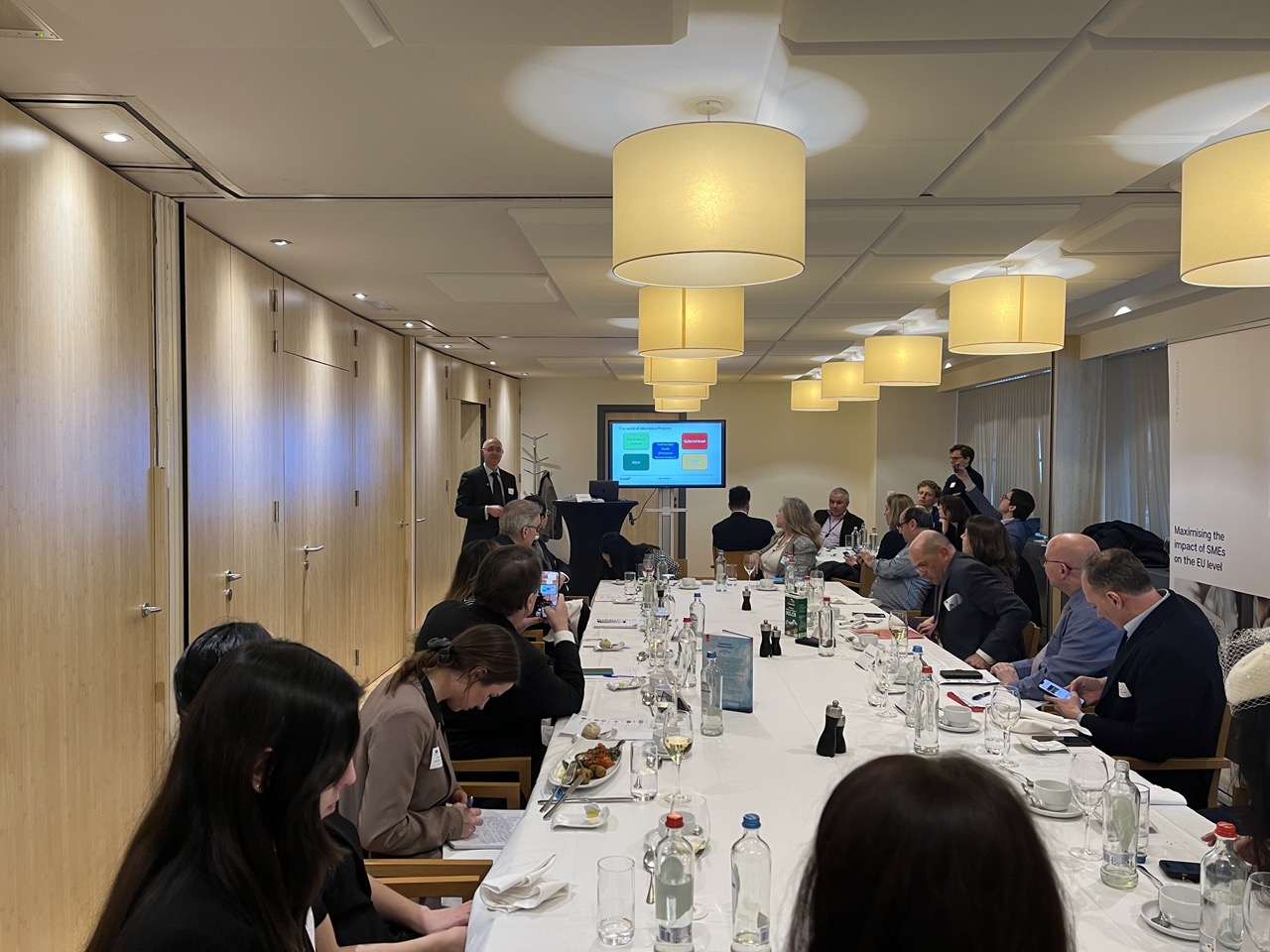
ANDREA BERTOCCO shed light on protein sources categorized by their impact on the planet’s resources, delineating a spectrum from the least demanding to the most resource-intensive. Plant proteins and algae were identified as the least taxing, followed by precision fermentation, and culminating with cultured meat and insects on the more resource-intensive. He flashed out the increasing interest in plant-based diets and publications related to health and environmental benefits, stating the availability of around 40 different plant protein sources and stressing the importance of sustainability in feeding a growing global population. He mentioned the health advantages associated with transitioning towards plant-based proteins, citing concerns regarding saturated fats, cholesterol, and their potential impacts on gut microbiome linked with animal proteins. He also touched upon the prospect of unique claims and intellectual property within the plant protein sector. Introducing collaborative projects with universities, Andrea showcased notable achievements in crafting blends akin to whey protein and exploring diverse plant sources, taking into account considerations such as demand on fertilizer and water efficiency.
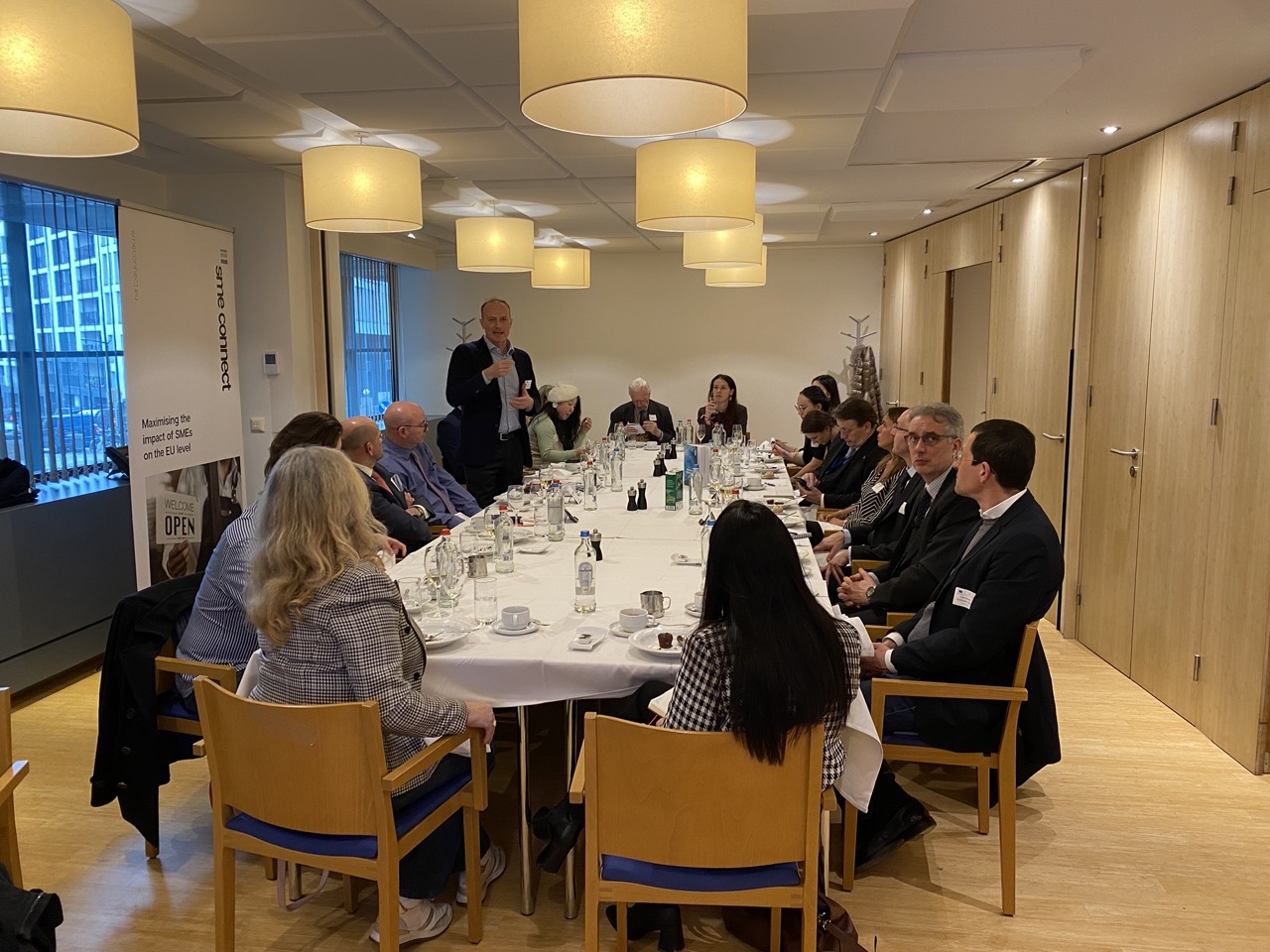
PROF PIETRO PAGANINI delved into the role of policy institutes in creating a diverse ecosystem that empowers consumers to make informed decisions through critical thinking. The focus shifted to providing knowledge and tools for individuals rather than imposing education on them. He talked about the caloric equation, which involves the daily calorie intake recommended by the WHO, and underscored the necessity for a comprehensive plan that considers not only proteins but also fats, vitamins, minerals, and sugars. Pietro argued for true diversification, recognizing the unique preferences of individuals based on traditions and territories. He underlined the importance of acknowledging diverse choices, whether related to consuming vegetables or dairy. Pietro advocated for empowering consumers to make free choices, acknowledging that making mistakes or unwise choices is inherent in human freedom.
In the Q&A round, panellists highlighted the need to transition towards a diet integrating more plant-based choices, emphasising their dual benefits for individual well-being and global sustainability. The discussion stressed the immediate requirement to decrease reliance on conventional protein sources like meat and dairy to meet the sustainable demands of a growing worldwide population. Key aspects included the necessity for education, policy-making, and regulatory backing to promote a prolonged inclination towards adopting a diverse protein landscape. The conversation delved into challenges like taste, cost, and consumer acceptance, maintaining a positive perspective on technological progress, notably in flavor masking for plant proteins. Future considerations encompassed environmental impacts, personalized nutrition, and the transformative role of technology in shaping the destiny of plant-based products. The overarching concept accentuated the importance of cooperative endeavors and supportive policies to nurture a sustainable and diverse protein market, ensuring a more wholesome, eco-conscious, and universally accessible food panorama.